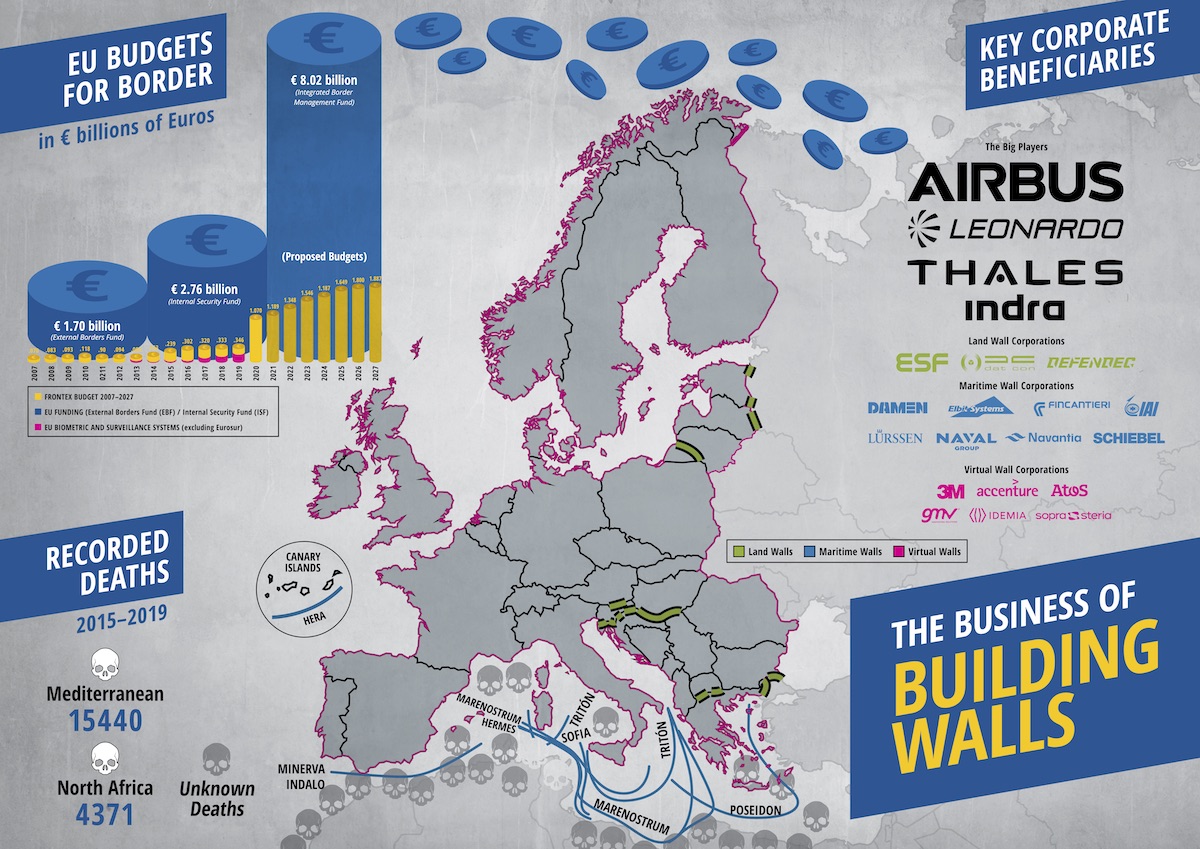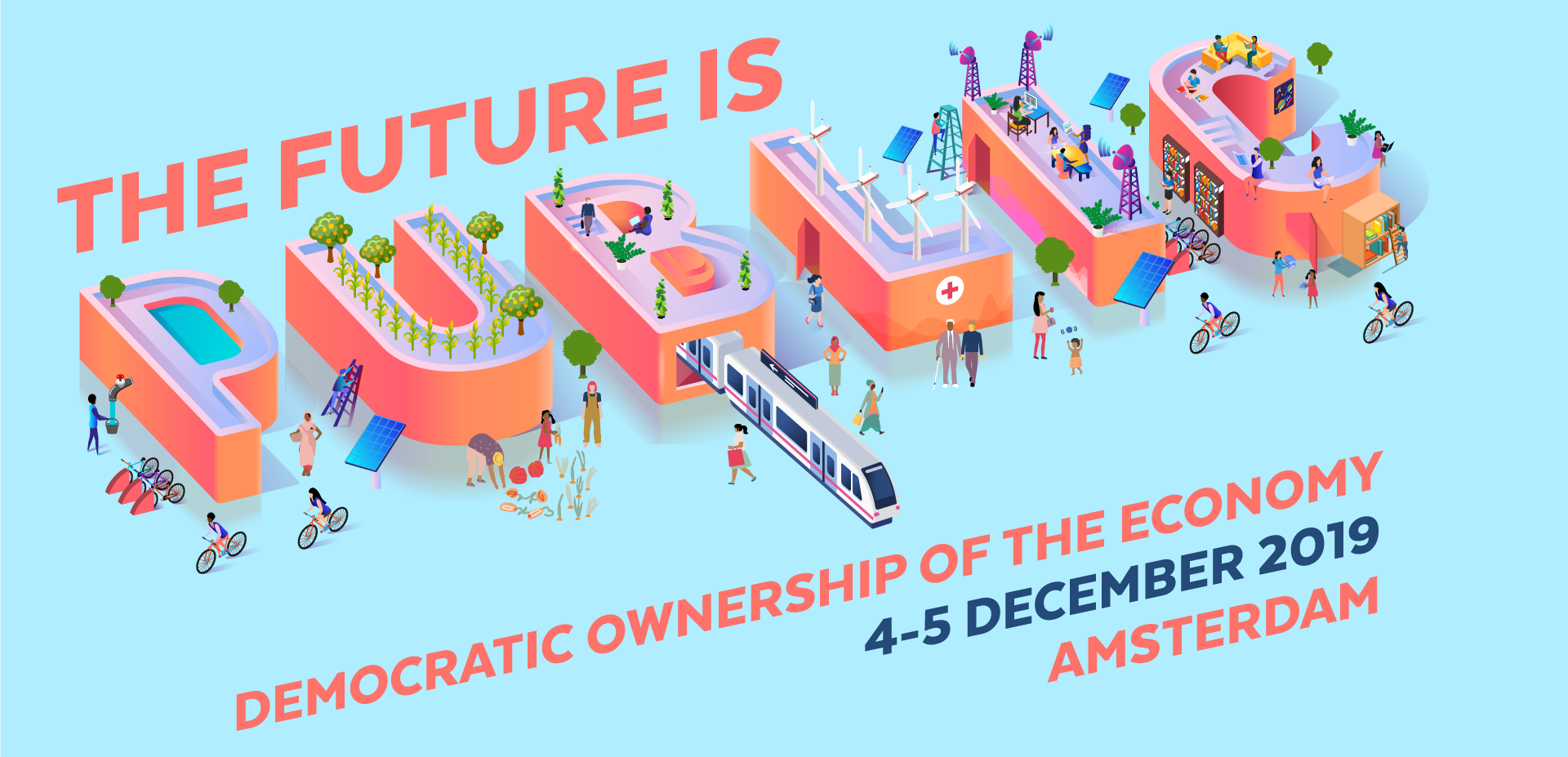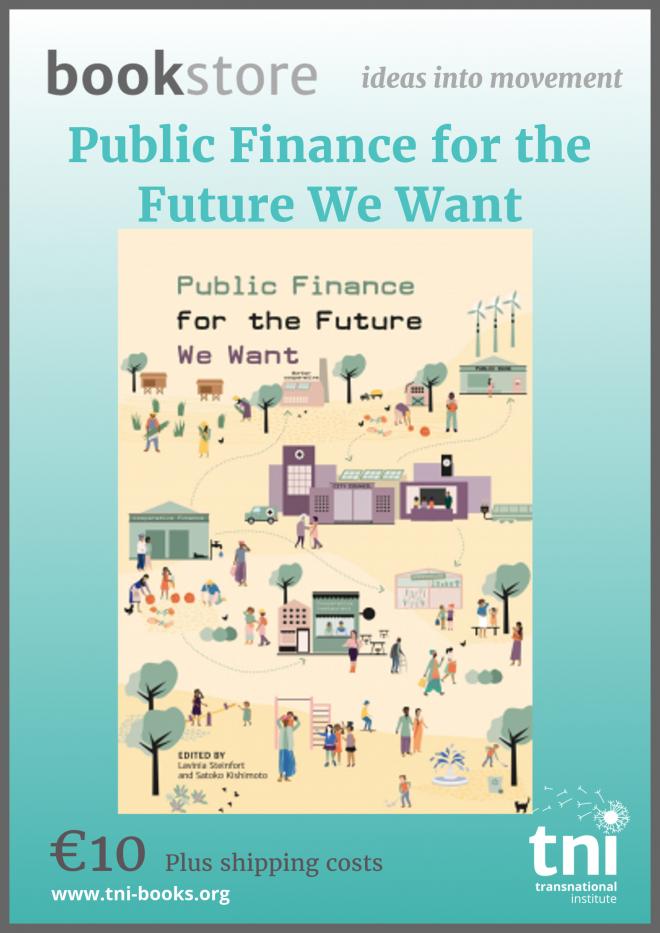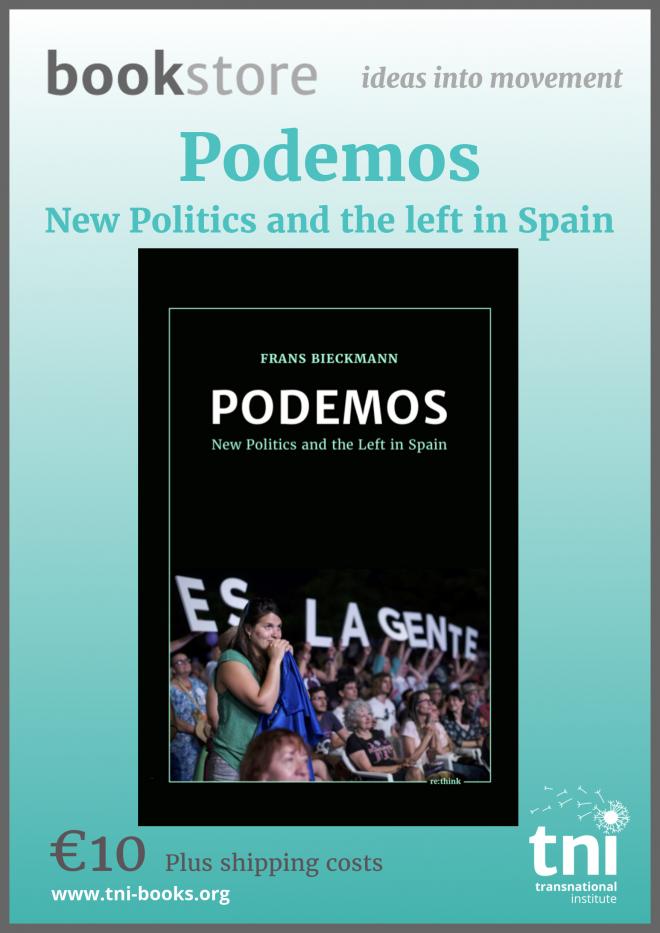|
|
|
The Berlin Wall fell in November, 1989, thirty years ago this month. Many celebrated the dawn of a new era of unity, openness and the beginning of a new world. But today, after three decades, we see a new rise of walls far more expansive than even the Berlin Wall.
Nota: Este boletín se publica solo en inglés. Si quieres recibir el boletín en español, puedes darte de baja de esta lista y suscribirte en esta. ¡Gracias!
Dear reader,
The Berlin Wall fell in November, 1989, thirty years ago this month. Many celebrated the dawn of a new era of unity, openness and the beginning of a new world. But today, after three decades, we see a new rise of walls far more expansive than even the Berlin Wall. Since the 1990s, European countries have built more than 1000 km of impenetrable border walls.
|

|
TNI has put out multiple publications on walls and borders, and to mark this anniversary, we are launching a report that explores the business of building walls, which has both fuelled and benefited from a massive expansion of public spending on border security by the European Union (EU) and its member states. We also launch the first episode of a special State of Power podcast series: Border Wars: Putting the “migration crisis” in perspective.
As always, we ask for your support in doing our work. Visit our website to find out how you can help us on our mission to build a just, democratic, and sustainable world.
|
|
|
|
|
|
|
|
|
Thirty years after the fall of the Berlin Wall, Europe is once again known for its border walls. This time, Europe is divided not so much by ideology as by perceived fear of refugees and migrants, some of the world’s most vulnerable people.
This report explores the business of building walls, which has both fuelled and benefited from a massive expansion of public spending on border security by the European Union (EU) and its member states. Some of the corporate beneficiaries are also global players, tapping into a global market for border security estimated to be worth approximately €17.5 billion in 2018, with annual growth of at least 8% expected in coming years.
|
|
|
|
|
|
|
|
|
|
|
This paper focuses on the changes in the legislation that led to the approval of Law 1787 in 2016. There is an in-depth analysis of the law’s implications, the types of licence and subsequent resolutions and goes on to present an overview of the current situation in the cannabis business. How can the legislation provide more benefits to the people who have suffered the most from the negative impacts of drug trafficking and from problems related to land distribution.
Read more
|
|
|
|
|
|
|
|
|
|
|
Since the launch of the BRI in 2013, 136 countries and 30 international organizations have signed BRI cooperation documents, received US$90 billion in Chinese Foreign Direct Investment (FDI), and exchanged US$6 trillion in trade with China. President Xi Jinping has described the BRI as the ‘Project of the Century’, yet the motivations, aims and scope of the BRI have been continuously debated and the Chinese Government has struggled to put forward a clear narrative for the initiative. This paper outlines a framing for how to understand the Belt and Road Initiative.
In addition to the BRI Framing Paper (AEPF), TNI launched a brand new Policy briefing on BRI in Myanmar, Selling the Silk Road Spirit: China’s Belt and Road Initiative in Myanmar.
|
|
|
|
|
|
|

Public ownership is at the heart of an alternative vision, one that puts people, public services and the planet first. This movement has inspired the City of Amsterdam, the Transnational Institute (TNI) and the many international partners to organize the international conference Future is Public: Democratic Ownership of the Economy.
You can register here to join the Future is Public conference in Amsterdam.
|
|
|
|
|
|
|
|
|
|
|
|
This is episode one of a series on Border Wars: placing the ‘migration crisis” in perspective.
It explores the rise of border walls particularly in the last three decades after the fall of the Berlin Wall, and analyses some of the systemic reasons behind what has been termed the “migrant crisis”. Follow-up episodes will focus on the corporate interests that stand to gain the most from existing migration policies, and explore ways in which communities are reaching out and building bridges instead of walls.
Subscribe to State of Power on Spotify, TuneIn or AudioBoom
|
|
|
|
|
| Here’s what we’re reading |
|
|
|
|
|
|
|
|
|
Get 15% discount in TNI's Bookshop!
'52YZRI1E' voucher takes 15% off the price (not including the shipping). Valid until 31st of December 2019.
|
|
 |
 |
 |
|
|
|
| |
|
|
|
"If only we had the resources of those we are up against, we could change the world!" - TNI President Susan George
Every amount will make an impact towards the Transnational Institute. You can choose to make a once off gift or ongoing donation of support.
|
|
|
|
|
|
| | | | | |